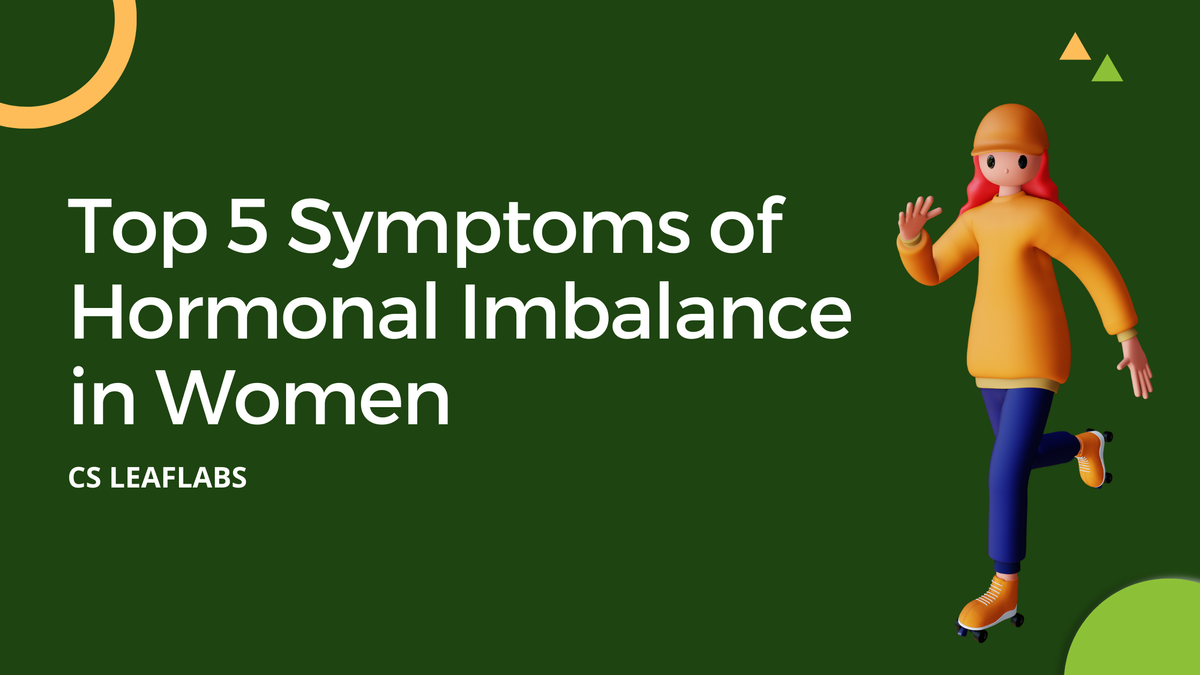
What are Hormones?
Hormones are chemical messengers that are secreted directly into the bloodstream, where they are carried to organs and tissues throughout the body to perform their functions. Hormones come in a variety of forms that affect various bodily functions and processes. Among them are the following:
Growth and development
Food item metabolism
Sexual function, reproductive growth, and reproductive health
Cognitive performance and mood
What are the top 5 symptoms of hormonal imbalance in women?
You have too much or too little of a certain hormone when you have a hormonal imbalance. Even minor changes can have a significant impact on your entire body.
While some hormone levels fluctuate throughout your life and may be due to natural aging, other changes occur when your endocrine glands make a mistake in the recipe.
Polycystic ovary syndrome (PCOS).
Polycystic ovarian syndrome (PCOS) is a hormonal imbalance caused by excess male hormones produced by the ovaries (the organ that produces and releases eggs). If you have PCOS, your ovaries produce an abnormally high level of androgens. This causes an imbalance in your reproductive hormones.
Irregular Periods
An irregular menstrual cycle is often due to a lack of or imbalance in certain hormones in the body. Irregular periods can also be a sign of polycystic ovary syndrome (PCOS), a hormonal disorder that typically comes to light in early adulthood and can cause enlarged ovaries, cyst-like follicles surrounding the eggs. Women experiencing PCOS often don't ovulate regularly, or at all.
Sleeping problem
Sleeping problems are both a symptom and a cause of hormonal imbalance. Some sleeplessness is normal, especially during stressful times, but routine or disruptive sleeplessness is not normal or healthy for the body.
Your body requires sleep in order for hormones to function properly. An imbalance of testosterone and estrogen can have a particularly negative impact on sleep. Sleep deprivation is more common in women, particularly during menopause. Sleep may be hampered by hot flashes and night sweats.
When your hormones are in balance, you may experience deeper sleep as well as a more normal sleep pattern.
Depression or Anxiety
Hormonal imbalance causes more than just physical symptoms. It may also have emotional, psychological, and mental side effects that cause you to think or feel differently. The stress of hormonal changes may increase your susceptibility to anxiety and depression.
Thyroid hormone production, as well as oestrogen, progesterone, testosterone, DHEA, cortisol, and insulin levels, can all have an impact on your mental and psychological health.
Stress is normal, but it should not interfere with your daily life on a regular basis. If you are experiencing anxiety attacks or depression symptoms such as difficulty getting out of bed, you should consult your doctor or a mental health counselor.
Skin Problems
Hormonal changes can cause skin problems. Skin symptoms that do not respond to standard treatment plans are usually a sign of a hormonal imbalance.
Acne is the most common, and it usually begins during puberty. Hormonal acne can be caused by low oestrogen or progesterone levels as well as high androgen levels. This is common during puberty, pregnancy, menstrual cycles, perimenopause, menopause, and times of high stress.
Additionally, itchy or dry skin is common. Because of the loss of oestrogen, women going through menopause may develop extremely dry skin or eczema. Furthermore, oestrogen deficiency can cause wrinkles and slow collagen production, which controls skin elasticity.
Psoriasis and other autoimmune conditions can flare up as a result of stress caused by hormone imbalance.
Do you know hormonal imbalance can be managed? Check out Feminira!
